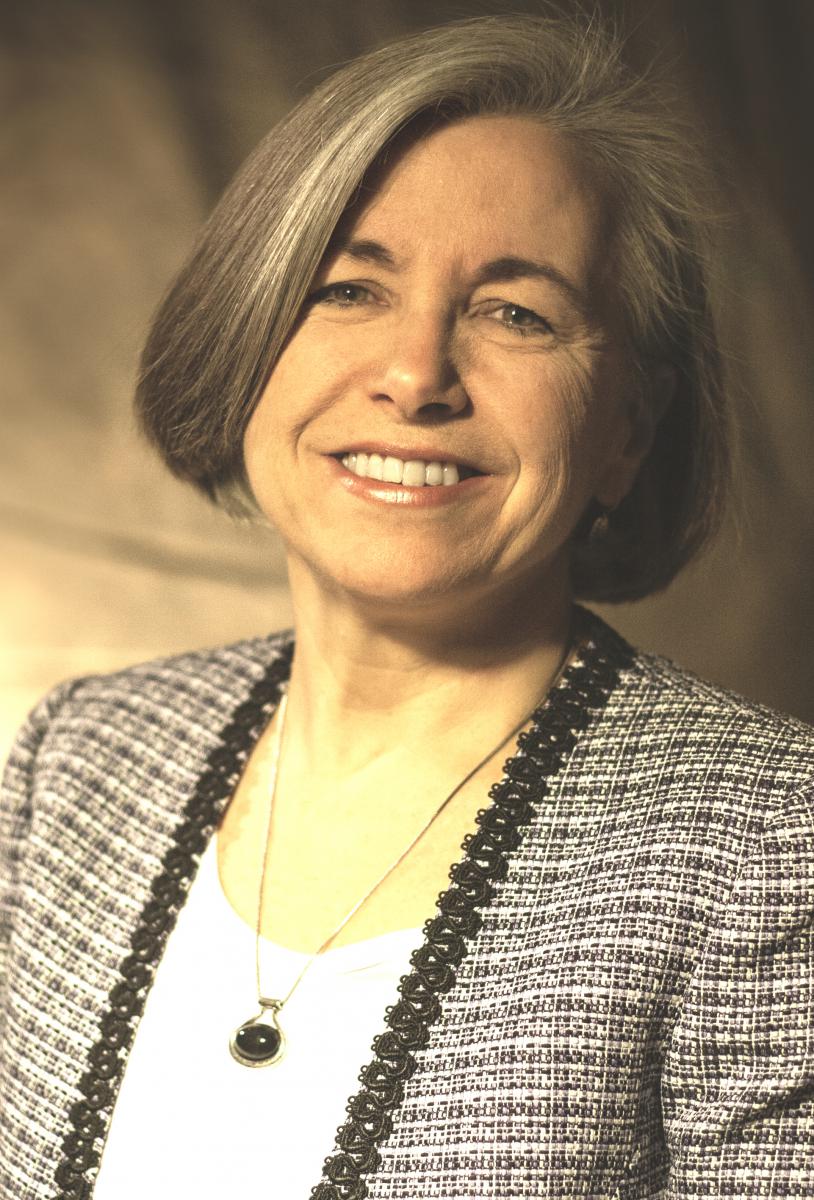Melissa Maguire, ’84, M.S. ’89, Equips Illinois Free and Charitable Clinics
By Eva Richards
 Melissa Maguire, ’84, M.S ’89, serves as the executive director of the Illinois Association of Free and Charitable Clinics (IAFCC).
Melissa Maguire, ’84, M.S ’89, serves as the executive director of the Illinois Association of Free and Charitable Clinics (IAFCC).August is traditionally Free and Charitable Health Clinic Month in Illinois, and this year, more than ever before, the need for these clinics is urgent in communities throughout the state.
NIU alumna Melissa Maguire, ’84, M.S ’89, serves as the executive director of the Illinois Association of Free and Charitable Clinics (IAFCC). In this role, she provides strategic, operational, ethical and inspirational leadership that is consistent with the IAFCC mission, vision, values and strategic plan. She has made it her mission to strengthen free and charitable clinics and increase the awareness of this sector throughout the state.
She is quick to clarify how these clinics work. They are 501(c)(3) organizations that rely on a volunteer providers to give quality health care to the uninsured and underinsured. There are over 1,500 in the country, 52 in Illinois. These clinics are not federally qualified health centers.
In her role, Maguire works to develop and implement capacity-building services and collaborative programs in response to patient priorities.
“The mission of the IAFCC is to increase access to quality healthcare to our uninsured and underinsured in this state,” she said. “I love to see these clinics address the real needs of the communities. When COVID-19 hit, these clinics weren’t getting donations or PPE (personal protective equipment) from the federal government. The clinics banded together, and we communicated daily, in real time, about resources, what clinics were doing, who was testing, and what practices were helpful. Today, our clinics are using best practices to care for their patients and protect their staff and volunteers.”
Maguire noted that, while one or two clinics had to completely shut down during the pandemic, most have gone on to find unique solutions for serving its vulnerable patients.
“We’ve had volunteers working from home, finding PPE and resources for our clinics,” Maguire said. “It’s my job to support them in doing that. I help them identify funding and find donations for our clinics.”
One recent donation made a huge difference to Illinois clinics. The American Heart Association donated 200 blood pressure cuffs to free and charitable clinics, which directly served the many patients who come to the clinics with diabetic and hypertensive disorders.
“We have data that shows that most adults actually do better at free and charitable clinics than they do at federally funded clinics,” Maguire said. “I love to see the connections and community that is happening at our clinics.”
Maguire noted that Illinois' clinics have been addressing the health disparities of their patients for decades, with some as long as 40 years. Still, there are plenty of signs of hope. Three of Illinois’ free and charitable clinics have recently received a grant to study and improve health disparities from the Institute for Health Care Improvement. Through the grant, these clinics will participate in the institute's "Pursuing Health Equity" initiative.
“It’s important for people to understand that free and charitable clinics in Illinois are quality healthcare. They are not second-rate healthcare,” Maguire said. “We have amazing patient outcomes, and we provide pharmacies, dental care, and cutting-edge medical care. Under careful supervision, medical students are able to provide healthcare. Through traditional training, students are three steps away from a patient. But when they volunteer, they are getting real, hands-on experience.”
Maguire came to IAFCC from The Night Ministry, a Chicago-based organization that offers housing, health care and human connection to members of our local community struggling with poverty and homelessness. Before that, she was contracted to work as a grant reviewer and peer monitor for the U.S. Department of Health and Human Services. In her early career, she served in a training and counselling capacity for several social services in Illinois, including at the Center for Emergency Shelter Organizations in Chicago, Family Services of Oak Park, Illinois, Teen Living Programs in Chicago, and Rosecrance Center in Rockford, Illinois.
Maguire’s passion for serving others started at an early age. Much of her family are involved in area social services, including her parents and grandparents. Still, only a couple of her extended family had ever gotten a college degree.
“I grew up in a family where church and service were important,” she said. “Growing up in the Chicago suburbs, some of my friends were looking into health fields. Through word of mouth and connections through friends, I ended up looking at NIU for its physical therapy program. But, when I got there, I realized I didn’t have the math and science acumen for that major, and I started volunteering at the Illinois Youth Center in St. Charles, Illinois. Going there regularly on Saturdays, I found that social services were what I really felt compelled to do, and I changed my major to Family Social Services.”
Maguire is quick to point out the effect the University’s faculty had on her career.
“I remember Professor Marv Fogle, who taught courses in crisis intervention and program management,” she said. “He pulled me aside and said, based on conversations we had after class, he wondered if I had thought about a master’s degree in community health. He helped me connect to nonprofits and to the Employee Assistance Program. He helped me to work at the county services bureau and put together research and practical experiences for me, so that I had a job that paid. He really made a difference for me and my career.”
Maguire went on to earn her master’s degree in community health from NIU and her master’s in social service administration from Case Western Reserve University.
After 30 years of this work, Maguire knows the average person in Illinois does not understand how free and charitable clinics work. While other states fund their free and charitable clinics, Illinois does not.
A proud Huskie, Maguire believes in the power of the pack. She says alumni can go to our organization’s website—https://www.illinoisfreeclinics.org—and find out more about what these clinics need as we continue through this uncertain time. She also welcomes alumni emailing to her with questions about how to help.
“The number of uninsured in Illinois are going up. With the recent rise in unemployment, many people have not been uninsured in the past and suddenly cannot use normal channels to find healthcare. They come into our clinics like deer in the headlights,” Maguire said. “This is a very real way people can help those who need it. Whether it is money, supplies, resources—our clinics just need the public to listen to what they need and be ready to serve in those ways.”
